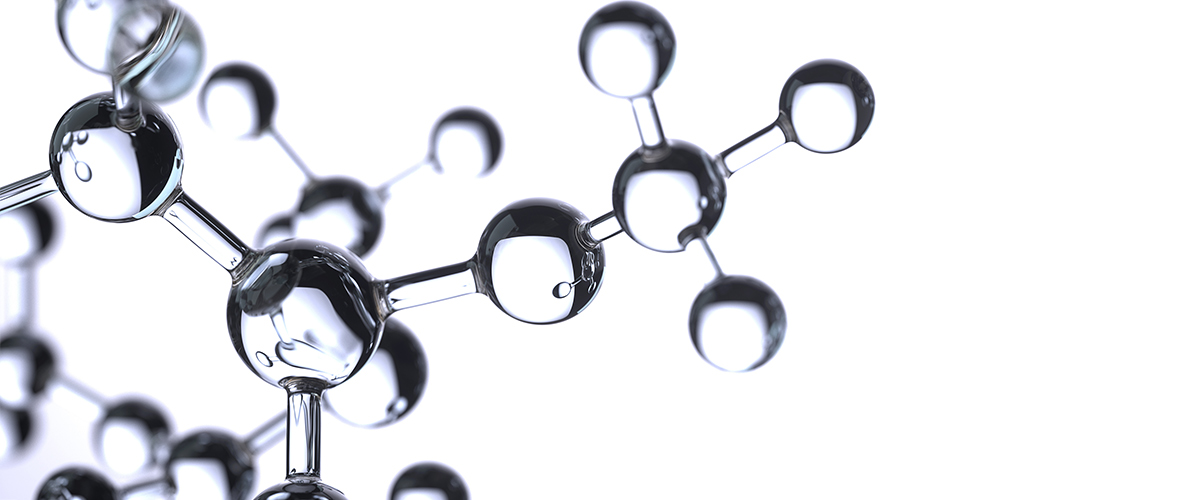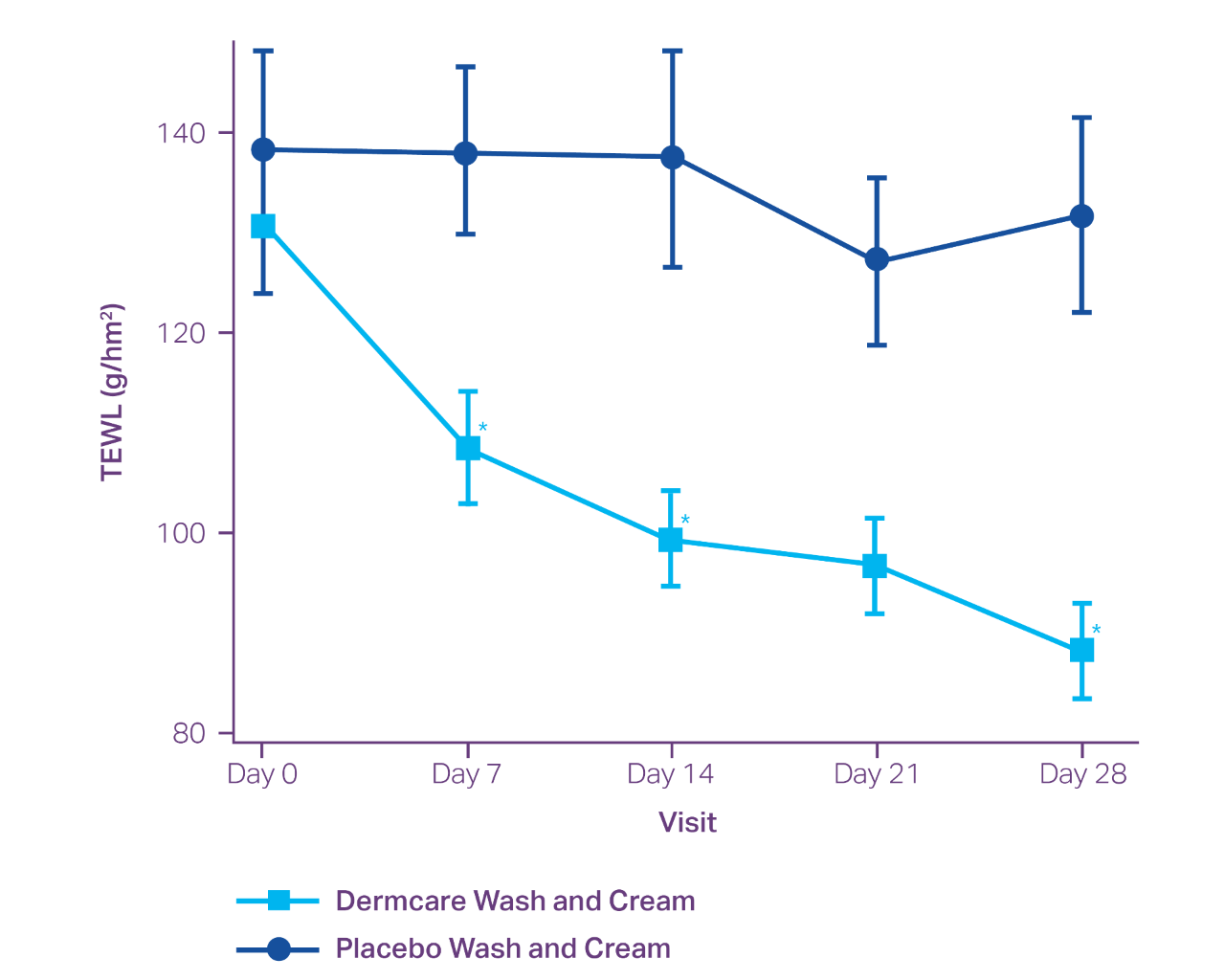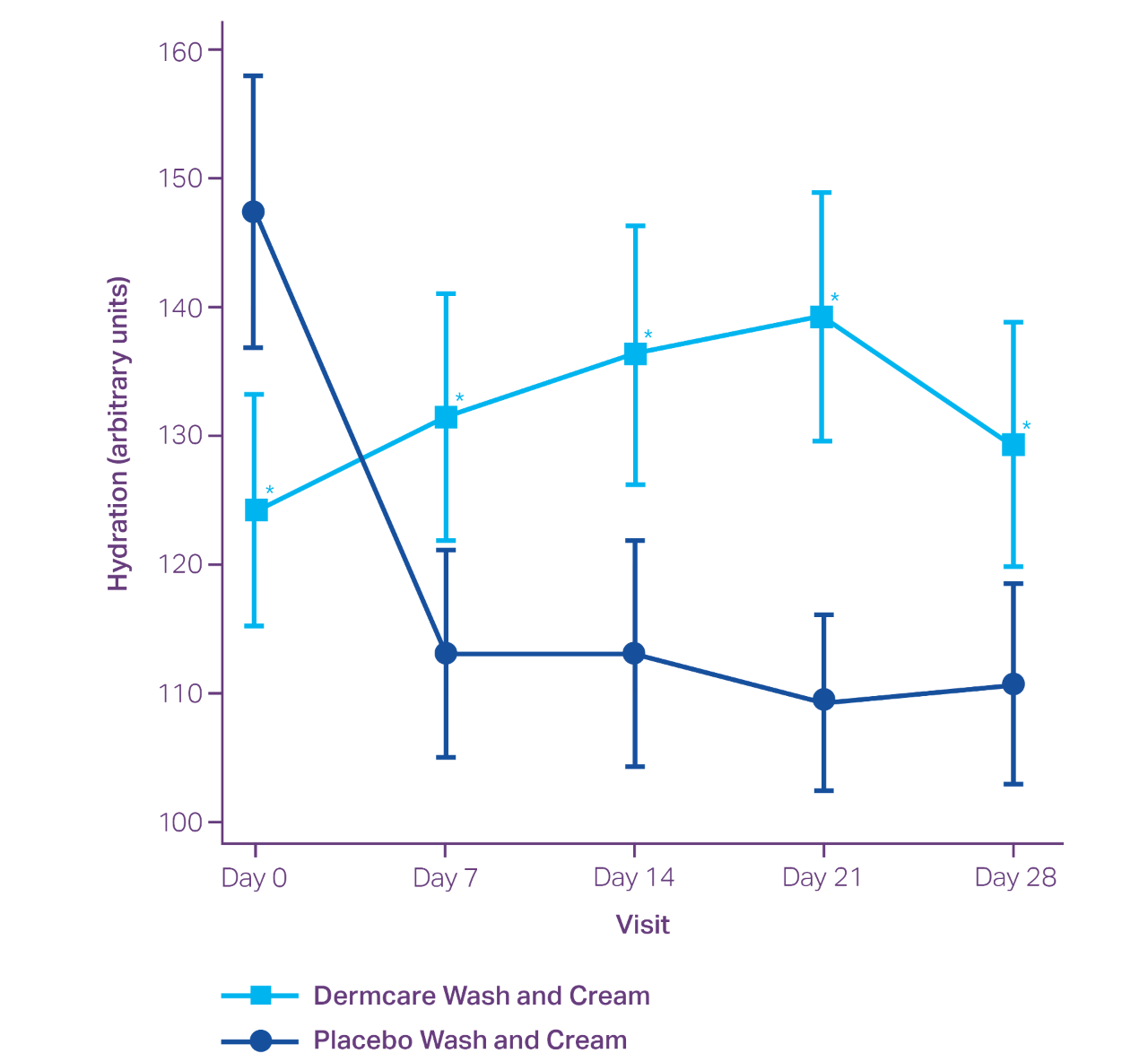The information included is for educational purposes only and is not intended as a substitute for medical advice. Eczema requires diagnosis by a medical practitioner. See your medical practitioner for further information.
Atopic dermatitis is a chronic, inflammatory skin condition that affects around 15-20% of children and 1-3% of adults1. Among the most notable symptoms are; intense itch, redness and a weakened skin barrier2,3. The skin barrier serves two important functions:
- Keeping moisture in
- Keeping allergens/irritants out
This function relies on the intercellular lipids (ceramides, cholesterol, free fatty acids), which interlink to form water-repellent membranes, or sheets, between the skin cells4. So the amount of water or moisture being lost through the skin, called trans-epidermal water loss can be a good way to measure the integrity of the skin barrier4.
Maintaining adequate skin hydration is especially important for people with eczema.
In order to maintain normal function and elasticity, the outermost layer of the skin (the stratum corneum) should have a water content of 20-30%6.





